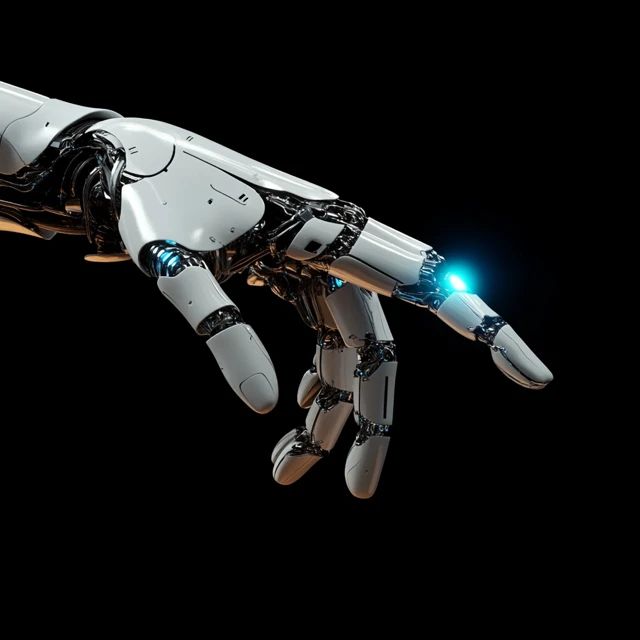Introduction:the digital frontier meets intelligence
Over the past ten years, there has been a significant change in the marketing environment. Artificial intelligence (AI), a force that is revolutionizing how companies interact with audiences, evaluate data, and provide individualized experiences, is at the center of this development. AI was originally thought to be a future idea, but it is now a crucial component of contemporary digital marketing tactics.Traditional marketing techniques are no longer adequate due to the volume of data being collected and the growing complexity of online consumer behavior. A new era of accuracy, automation, and efficiency is brought forth by artificial intelligence. This tutorial explores AI in digital marketing in depth, emphasizing its uses, advantages, and potential future.
Understanding Artificial Intelligence in Marketing
The simulation of human intelligence in robots that are designed to understand, learn, and solve problems is known as artificial intelligence. AI makes it possible for devices to evaluate customer data, forecast behavior, and automate decision-making in the context of digital marketing.
AI is a collection of technologies that includes machine learning, computer vision, natural language processing (NLP), and predictive analytics rather than a single tool. These features enable marketers to optimize return on investment, improve user engagement, and develop data-driven strategies.
The Role of AI in Data-Driven Marketing
The foundation of digital marketing is data. AI differs from conventional analytics tools in its capacity to swiftly and precisely evaluate large datasets. AI is able to recognize patterns and trends that might otherwise go undetected by using machine learning techniques.
Marketers can adjust their tactics to suit particular requirements by having real-time insight on the preferences and actions of their customers. AI transforms unprocessed data into useful insights, whether it be for audience segmentation, trend prediction, or campaign optimization.
Enhancing Personalization with AI
Delivering hyper-personalized experiences is one of AI’s most important benefits in digital marketing. Nowadays, customers anticipate that firms would be aware of their interests and offer content that is specifically catered to them.
AI accomplishes this by creating customized marketing messages by examining browser trends, historical activities, and purchase histories. Consequently, companies may boost engagement rates, lower bounce rates, and cultivate enduring client loyalty.
Revolutionizing Customer Interactions with AI Chatbots
Another area where AI is having a big impact is customer service. AI-powered chatbots are already widely available on messaging apps and websites, providing consumers with round-the-clock, immediate assistance.
In contrast to conventional customer support channels, chatbots can manage several inquiries at once, deliver reliable responses, and gain knowledge from exchanges to get better over time. This lowers operating expenses for companies while also improving consumer happiness.
AI in Content Creation and Optimization
Developing top-notch content is essential to any digital marketing plan. It can, however, require a lot of time and resources. Natural language generators and GPT-based models are examples of AI solutions that help marketers create blog posts, product descriptions, email campaigns, and more.
AI helps with optimization in addition to content creation. AI makes ensuring that content stays interesting, relevant, and in line with audience expectations by evaluating engagement numbers and making recommendations for enhancements.
Smarter Advertising Through AI-Powered Insights
AI has advanced the sophistication of digital advertising. AI-powered programmatic advertising uses real-time data analysis to automate ad placement and purchase. Ads are guaranteed to reach the appropriate audience at the appropriate moment thanks to this.
AI also aids in budget allocation, bidding strategy, and ad creative optimization. AI raises ROI, decreases waste, and improves ad efficiency by continuously learning from campaign performance.
Predictive Analytics and Future-Ready Strategies
When it comes to marketing strategy, predictive analytics is revolutionary. Businesses can use AI to predict customer behavior before it happens. Planning and resource allocation are made possible by this proactive approach.
AI, for instance, may forecast which product categories are most likely to experience churn or which products a client is most likely to purchase next. Marketers can create focused campaigns that increase conversions and client retention by implementing these predictions.
Ethical Considerations and Challenges of AI in Marketing
Although AI has many advantages, there are also moral questions raised by it. Among the challenges marketers face are data protection, algorithmic bias, and lack of transparency. Clear data policies and compliance with laws like GDPR are necessary for the responsible use of AI.
Additionally, relying too much on automation can reduce the human element in marketing. Maintaining authenticity and customer trust requires finding the ideal balance between AI and human ingenuity.
Conclusion: Embracing the AI-Powered Future
In digital marketing, artificial intelligence is a game-changer, not just a fad. Its uses are numerous and significant, ranging from predictive analytics to personalization. In a data-driven world, companies who successfully use AI will have a competitive advantage.
AI’s skills will advance in tandem with technology. To take full advantage of this shift, marketers need to remain knowledgeable, flexible, and moral in their approach. Digital marketing has a bright future and is now here.

